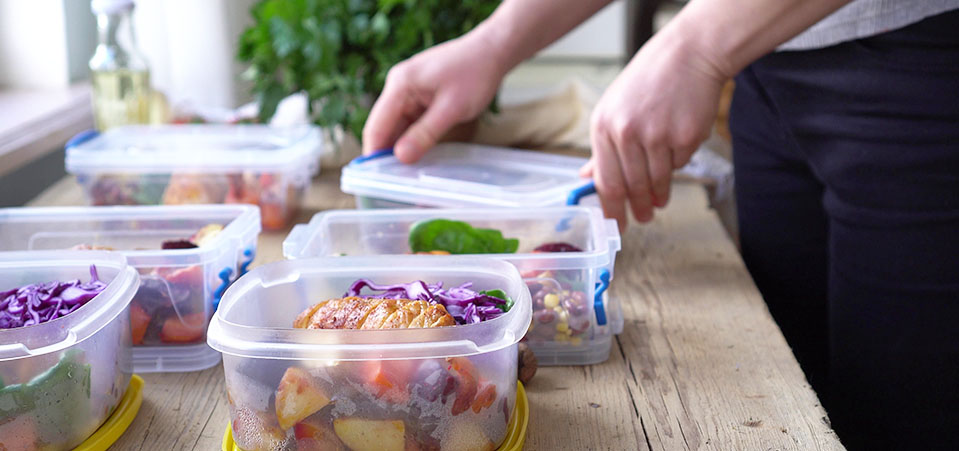Whether you’ve detoxed on your own or are moving into recovery after going through professional treatment, cravings are an aspect of recovery you will have to deal with. Cravings can range from simple longings for a substance to a near-overwhelming urge, which you can find yourself acting on before realizing it. For many people in recovery, they start out small and build up until using and being high or drunk are all you can think about. Recognizing cravings, learning how to deal with them, and developing management strategies will help you to make it through this period of recovery, so you can stay clean or sober and move on.

These coping techniques will help you on your way to a more stable recovery.
Delay Acting on Cravings
Cravings can seem overwhelming in the moment. Even a few minutes of resisting can feel like forever. But science tells us that cravings are temporal. Near-irresistible urges are short-lasting, and many begin to fade after just 15 minutes. If you can hold out, the craving will die down and you’ll have time to talk to someone, to change your environment, or to put yourself in a safer environment so that you’re not at risk of relapse.
How can you do so? Most people find that keeping themselves busy helps. Try to do something that involves physical labor or working with your hands, like cleaning the bathroom or washing the dishes and focusing on that. Chances are you won’t have the concentration to manage mental work, so you’ll just end up more frustrated and thinking about using.
Work to Reduce Stress
Stress is one of the largest contributors to relapse. Many addiction treatment centers offer stress management courses, mindfulness-based stress reduction (MBSR), and stress management activities such as yoga or meditation to help. If you haven’t been to a rehabilitation center or haven’t received this type of training as part of your recovery, you should consider doing so independently.
Here, many people drink or use as a form of self-medication, using drugs or alcohol to de-stress, to numb painful emotions, and to take their attention away from problems or worries for a short time. In early recovery, your brain is suffering from a natural shortage of neurotransmitters like dopamine and serotonin, which help you to manage stress and help you to feel happy, fulfilled, and satisfied. Most drug abuse affects neurotransmitter production in the brain because drugs either stimulate it, affect absorption, or function as a synthetic form of the neurotransmitter, which reduces the brain’s need to produce it on its own. As a result, you will feel more stressed and anxious in early recovery, but this will fade over time as your brain and body return to normal.

Practice Short-Term Avoidance
While long-term avoidance can get in the way of your recovery because you’re likely to relapse the first time you’re exposed to drugs or alcohol, short-term avoidance can be very beneficial. For example, many treatment facilities keep individuals in relative seclusion from drugs and alcohol at rehabilitation centers for 30-90 days. This seclusion allows you to get over the cravings in early recovery, which can be extreme. If you’re doing so at home, practicing short-term avoidance can be extremely beneficial.
How can you practice short term avoidance? In most cases it’s a good idea to actively review where you are likely to be exposed to cravings and avoid those people, things, and circumstances. Some triggers for most people include:
- Areas or locations where you previously used or drank
- People you used or drank with
- Physical presence of drugs, alcohol, or paraphernalia
- High-stress situations
- Situations of achievement such as weddings or promotions
- Situations that caused you to use in the past such as arguments, work projects, etc.
- States of exhaustion, hunger, loneliness, or other very negative emotions
While you obviously can’t avoid all triggers forever, you can work to reduce your exposure to them at first, build coping mechanisms through therapy and counseling, and slowly increase exposure over time as you become stronger.
Focus on Physical Health
While addiction is very much a mental disorder, the mind and body are intrinsically intertwined. Your physical health will affect your mental health and your ability to cope, your ability to deal with cravings, and your overall mood, which will impact your ability to stay in recovery. Here, you should pay attention to both nutrition and exercise. However, exercise is the more important of the two for short-term cravings.
Why? Exercise in extremely effective in helping you to stay sober and avoid relapse. It improves your mood by increasing blood circulation throughout the body, which provides an energy boost. It also stimulates neurotransmitter production, which can reduce cravings. For this reason, getting at least 30 minutes of exercise per day, especially in early recovery, can greatly help you to reduce cravings. Just don’t overdo it. A 30-minute walk, swim, or period spent playing a sport is exercise. Pick something that you can sustain and that you hopefully enjoy.

Nutrition will also play a part in helping you to manage cravings, but it will take some time to have an impact. Therefore, you shouldn’t expect changes to your diet to have an immediate effect. However, many addicts suffer from nutritional deficiencies, gastrointestinal damage, and resulting disorders which impact the mood and mental health. If you haven’t received nutritional therapy in rehab, you should consult a nutritionist to determine a proper diet that will help you manage and improve your health.
Ask for Help
While you can do a lot to deal with cravings on your own, it’s important that you be able to ask for help when needed. You can look for help in your friends and family, a self-help group such as 12-Step or SMART recovery, or from a therapist or counselor. Hopefully, you will look for help from each of these sources, so that you have a stable and diverse support group behind you. Here, you can talk to your counselor or therapist to determine root issues behind cravings and work to solve them. You can get emotional support from friends and family, and you can share how you feel and how it affects you in a nonjudgmental environment of your peers in a self-help group. Simply being able to share and being expected to share will help you to stay accountable to both yourself and to the people you let into your life.
Importantly, if you haven’t been to recovery and rehab, you will benefit from treatment. Here, you will receive therapy and behavioral therapy designed to help you recognize and change behaviors and thought processes contributing to addiction, so that you can recover fully and move on.


















